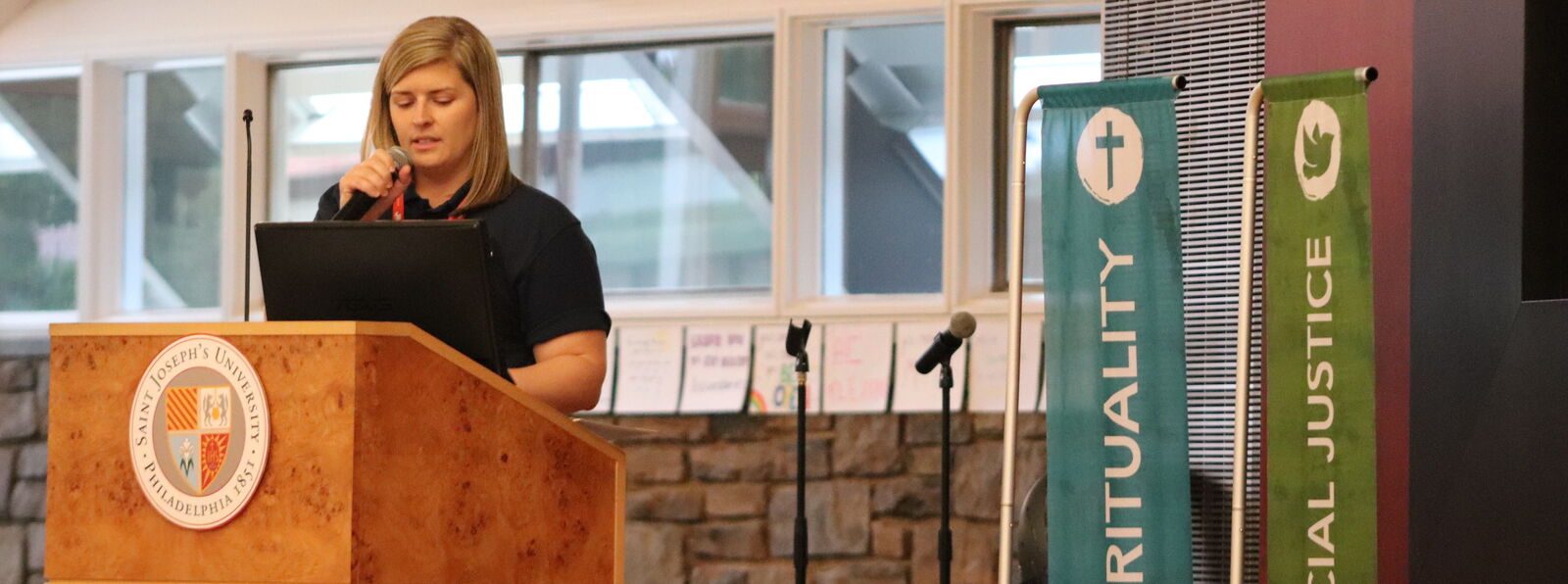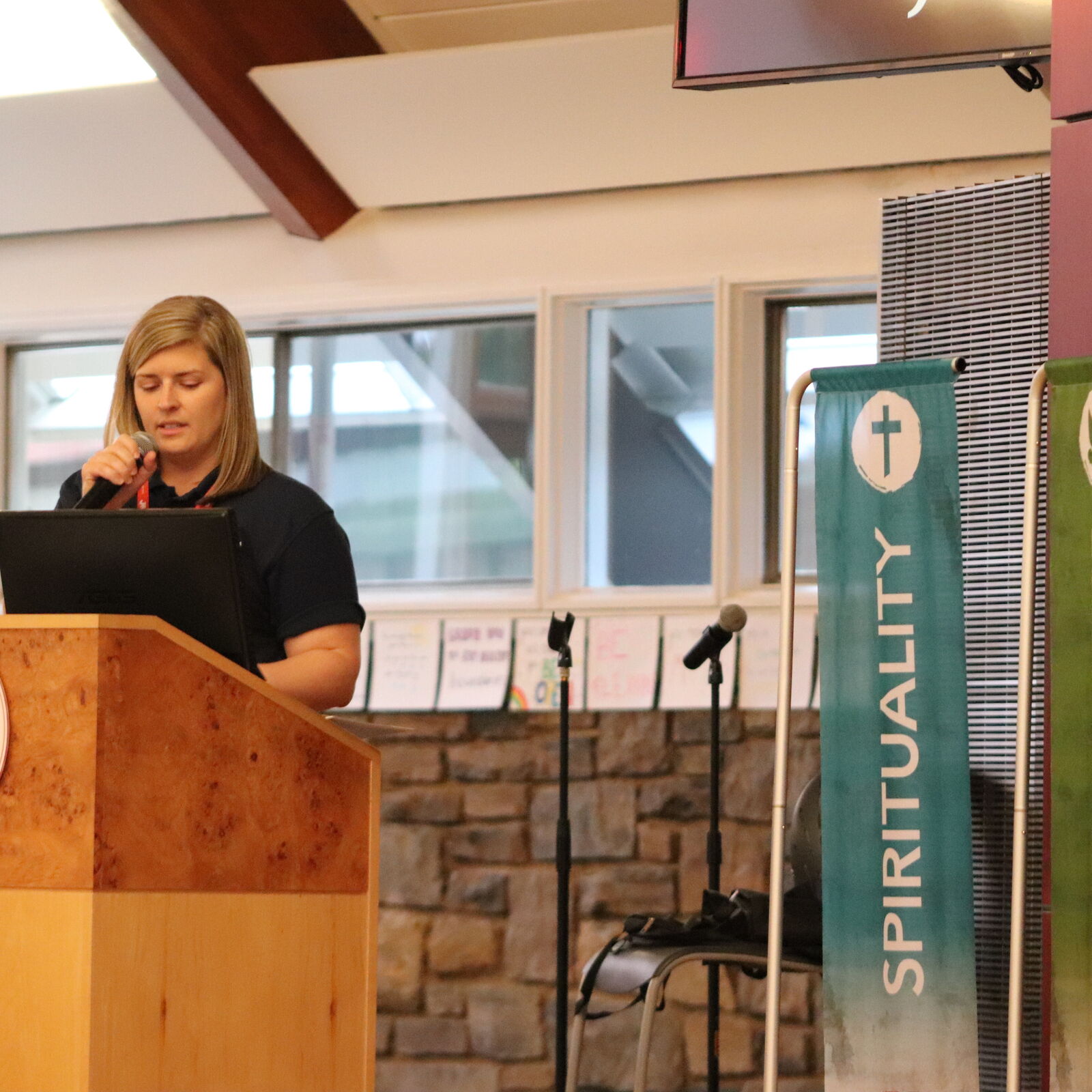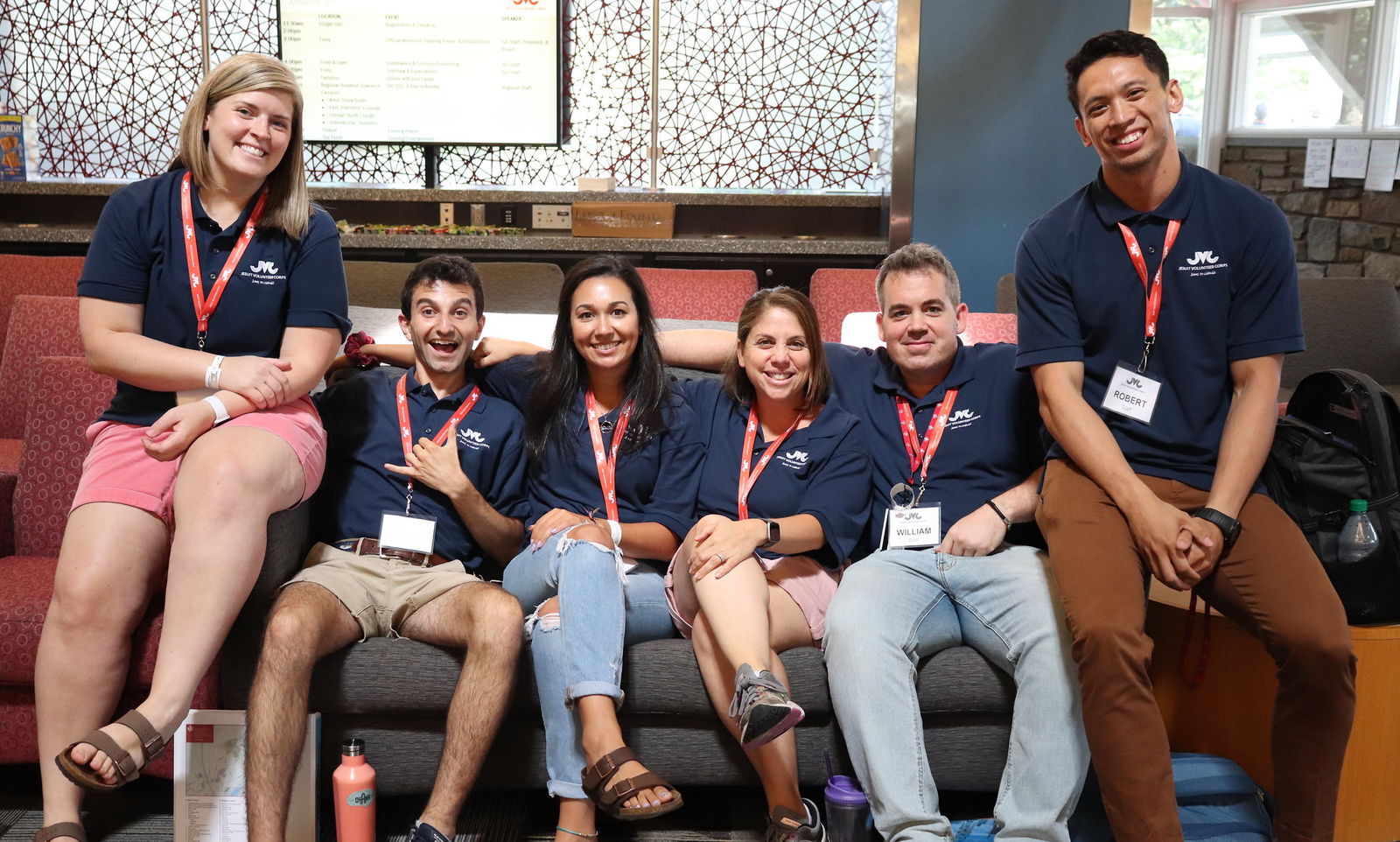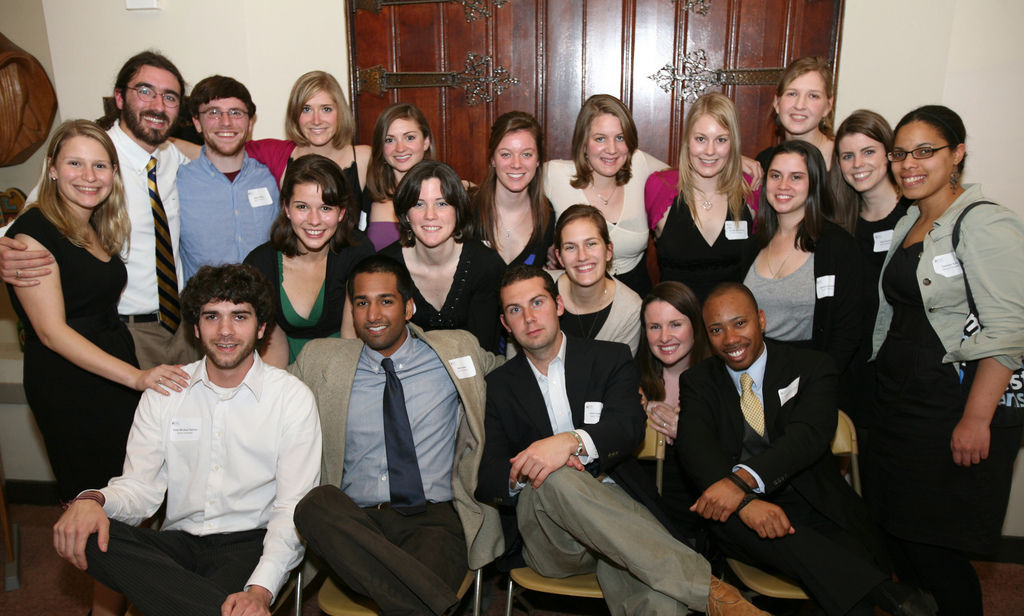

OUR FORMATION PROGRAM
We believe that service alone is not enough to foster transformative growth in our Jesuit Volunteers.
JVC's Formation Program provides volunteers with the tools to process and learn from their service experiences, think critically about the root causes of injustice, and analyze the ways in which the identities they carry impact the lives of those they serve.
For inspiration, we look to the Jesuits, who have centuries of experience in solidarity, accompaniment, and reconciliation with marginalized communities. We believe Jesuit frameworks for social analysis and reflection are relevant and useful to all on the front lines of social justice.
OUR CURRICULUM
The Jesuit Volunteer Corps welcomes all passionate, young people, regardless of their familiarity with -- or prior interest in -- faith, religion, Catholicism, or Ignatian spirituality. We simply ask that volunteers remain open to hearing and learning about Ignatian tools and principles and applying them where relevant.
Through in-person retreats and ongoing, guided reflection, our formation curriculum frames the service experience within four, interrelated values of the Jesuit tradition: spirituality, social justice, community, and simple living. Each value is reinforced through the use of foundational tools that allow Jesuit Volunteers to choose, in an informed and thoughtful way, whether and how to engage in and practice the following at the end of their term of service:
-
Spirituality
Jesuit Volunteers receive the tools and frameworks to:
-Perceive the work of God in all creation, in personal and professional relationships, and in the “signs of the times” [Jesuits: “finding God in all things”]
-Practice methods of personal reflection in daily life (e.g. the Examen) individually and in groups, becoming comfortable with silence
-Engage in regular spiritual and theological reflection on personal life, work, and contemporary issues using spiritual texts (including Scripture) and other resources
-Discern and discuss the challenges of living faithful and just lives in family, community, individually, or with a spiritual director
-Pursue their vocations through deep attention to prayer, personal gifts, interior movements, relationships, and the common good
-Maintain a spiritual life in companionship after JVC
-
Simple Living
Jesuit Volunteers receive the tools and frameworks to:
-Manifest a personal awareness of the need to maintain balance and perspective in the presence of the forces of consumerism, busyness, ambition, and materialism in everyday life and career
-More deeply understand the lives and resource constraints of our human family whom we seek to accompany and serve
-Evaluate the human and ecological consequences of their choices and follows practices which minimize harm to our “common home” and promote the well-being of all.
-
Community
Jesuit Volunteers receive the tools and frameworks to:
-Participate in community building (church, social justice organizations, neighborhood, etc.)
-Practice methods of active listening, consensus-building and conflict resolution with their community
-Practice humility, self-reflection, and self-awareness, along with a willingness to be vulnerable, open to feedback, and commitment to personal growth within community
-Develop mutual relationships across lines of difference (e.g., socioeconomic background, cultural tradition, national origin, religious preferences, racial/ethnic background, sexual orientation, ability level) and joyfully put the needs of others above their own
-Adhere to the Ignatian presupposition to assume good will, or, as Ignatius says, “to be more ready to put a good interpretation on another’s statement than to condemn it as false” (Spiritual Exercises, Annotation 22)
-
Social Justice
Jesuit Volunteers receive the tools and frameworks to:
-Recognize and evaluate the structural roots of injustice within social institutions, cultures, economic and political structures as well as the global nature of many current social problems and their impact on various human communities
-Recognize personal prejudices, stereotypes and presumptions and move to transcend them
-Apply the Jesuit practice of discernment, analysis, reflection, and action to service experiences
-Advocate for social justice issues
-Apply Catholic social justice principles in social analysis

JV Formation Retreats
Our Jesuit Volunteers still attend five retreats each program year. These formation retreats provide volunteers with guided reflections in the Ignatian tradition.
-
Orientation
All volunteers start their year of service attending a four-day orientation workshop. During this time, volunteers will learn about the Ignatian foundations of the program.
-
Day of Reflection
JVC Community Day of Reflection is designed as a time for a community (or two) to come together to focus on the value of intentional community in JVC. This reflection meets JVs where they are at and engages them in meaningful ways of identifying and working toward next steps. Great things can happen when community members gather in a neutral place and share prayer, meals and honest conversation!
-
ReOrientation
ReOrientation focuses specifically on social justice, and is structured around the Pastoral Circle. This retreat further allows the volunteers to explore the structural roots of injustice, as well as provide the opportunity to debrief and reflect upon the graces and challenges of each JV in relationship to their unique work and community environments.
-
Silent Retreat
This retreat emphasizes Ignatian spirituality, and gives volunteers the opportunity to deepen their experience in discernment, contemplation and the Spiritual Exercises. JVs develop a deeper understanding of how God has been working through their lives over the course of their JVC service year/s.
-
DisOrientation
DisOrientation is organized around the movements of the Exercises. It provides a forum for volunteers to reflect on their experiences from the year, including time and resources for reconciliation within communities or between volunteers. JVs will identify and explore issues related to closure, good-byes, transition and/or grief. JVs will have time to explore the joys and challenges of continuing to integrate the four values after JVC. DisO is also a space for JVC to recognize, cherish and celebrate the goodness and the growth of volunteers and to welcome them into the family of FJVs.

OUR FORMER JESUIT VOLUNTEERS
Former Jesuit Volunteers do amazing things: they serve the public interest as members of Congress, found and lead organizations at the forefront of social change, heal bodies and minds as medical professionals, advocate for justice as lawyers and judges, and continue to work with the marginalized. And through it all, they bring with them the values, experiences, and frameworks of the Jesuit Volunteer Corps.
Notable alumni include:
British Robinson
CEO at Barbara Bush Foundation for Family Literacy
Monica Márquez
Justice of the Colorado Supreme Court
Jody Kent Lavy
Director and National Coordinator at The Campaign for the Fair Sentencing of Youth
AnnMaura Connolly
Chief Strategy Officer and Executive Vice President, City Year, Inc.
Jeffrey Thielman
Chief Executive Officer and President, International Institute of New England
John Dillon
Founder, Chrysalis
Fr. Scott Santarosa, SJ
Jesuits West Provincial
Fr. Steve Katsouros, SJ
Executive Director at Arrupe College
Marilyn Pryle
Pennsylvania Teacher of the Year
Colin Crowell
Former Vice President of Global Public Policy and Corporate Philanthropy, Twitter
Trena and Kevin Yonkers-Talz
Co-Directors and Co-Founders, Casa de la Solidaridad
John Carron
Managing Director, Goldman Sachs
Eileen Quigley
Sustainability Manager, National Resources Defense Council
PREPARE TO CHANGE FOR GOOD
Get in touch with our recruiting team to learn more about serving as a Jesuit Volunteer.

